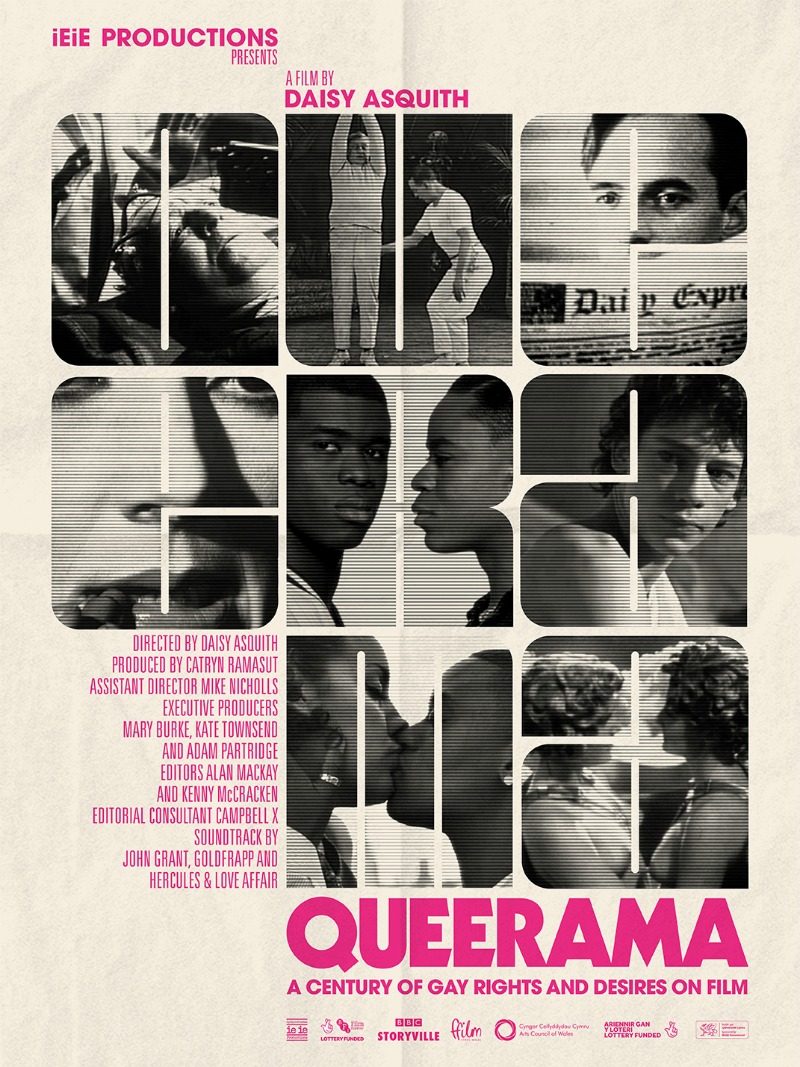It’s tempting to think it’s a male story, but the stigma around homosexuality affected lesbians just as deeply.”
Daisy Asquith is set to make waves across the LGBTQ+ film industry when she opens the Sheffield Doc/Fest tomorrow – one of the world’s leading documentary festivals – with the world premiere of her film Queerama.
The documentary, about a century of gay rights and desire, marks the 50th anniversary of the partial decriminalisation of male homosexuality. Using BFI National Archive footage, the documentary showcases, “unseen queer films”, as Asquith puts it, from the 20th century and into the millennium.
The result is both funny and tragic. Footage from four 1950s and 60s documentaries – hilarious because it is so unbelievable – shows journalists attempting to unpick the ways of the queer community. (One narrator, as if presenting a wildlife show, asks: “What is lesbianism? What causes it? And, can it be cured?”). But it has a hard-hitting edge – the impact of Thatcher’s Section 28 and the AIDS crisis are explored with great sensitivity.
DIVA caught up with Asquith, who has been making films for 21 years, to talk about historical attitudes towards the LGBTQ+ community; working with Stud Life director Campbell X – and what she hopes her film will achieve.
What does your film show about the attitudes towards the LGBTQ+ community in the 20th century?
Some of the stories are heartbreaking – about people whose gender and sexuality prevented them from living their lives. It’s astonishing how brave gay people were in the 50s to come out at all. Even after 1967, many gay men were arrested. It’s tempting to think it’s a male story, but the stigma around homosexuality affected lesbians just as deeply.
But it is also amazing, you are lifted by their courage – and humour in many cases – that they used to deal with it. The strength of love wins out against all this shit.
The theme at this year’s Sheffield Doc/Fest is resistance and change. How does your documentary fit into this?
It’s a political film about resistance – highlighting the fact that all over the world gay people are still being persecuted.
What does your film show about the resilience of LGBTQ+ people?
Gay people have always been there, whether it was legal or not. Thatcher said in the 80s that we were encouraging people to be gay – that there would be almost an epidemic of gayness – this film puts that to bed. It certainly wasn’t as bad [for LGBTQ+ people] in the 19th century; it’s the 20th century that bullied gay people.
What do you hope your film will achieve?
That people will realise how far we’ve come. It’s easy to forget what’s been achieved already. I hope that it will make people feel absolutely, unreservedly proud to be part of this community – and that it serves as a warning against things getting worse again. None of us are safe in this world.
What was it like working with Stud Life director Campbell X, who was editorial consultant?
Campbell was the perfect person to give a sense of lesbian representations in the film and also of people of colour. They’ve watched cuts all the way through and given fantastic feedback.
What was it like collecting the footage for the film?
Assistant director Mike Nicholls and I watched hours of archive footage at the BFI – there were lots of frustrations because there were certain things we couldn’t clear. But what ended up happening was we had more unseen stuff – so that turned into a virtue, even though it hurt at times.
How does the music by John Grant fit into the documentary?
I got to know John through making a feature documentary about him. He writes lyrics, which are extremely unusual in their frankness. They are also very emotionally intelligent. It’s been great to use them to move the emotional narrative on, rather than just the historical one.
How should we respond to the historical wrongdoings of media companies, like ITV and the BBC, whose documentaries from the 50s and 60s feature in the film?
There are four documentaries in it, which have priceless comments about [LGBTQ+ people] needing help and being ill – [Asquith imitates the narrator] – “what do lesbians actually do?”
We need be a little generous. Now it looks ridiculous and it can be angering, but the best way to respond to for me is to laugh and use humour to deal with it.
Are there any common themes that unite your work?
Shame. There’s a lot of shame, rejection of shame and the impact of shame – it seems to be a recurring theme. But also humour – shame and humour are a really good combination for a film.
What advice would you give to aspiring filmmakers?
Make films with your phones until somebody notices. It’s all about the story telling and not the budget.
The Sheffield Doc/Fest runs from 9-14 June in the Delegate Centre and Showroom Cinema, Sheffield. It will also be screened at Glastonbury, Latitude and the BFI’s Gross Indecency season.
Only reading DIVA online? You're missing out. For more news, reviews and commentary, check out the latest issue. It's pretty badass, if we do say so ourselves.
divasub.co.uk // divadigital.co.uk
